RFK Jr. Reveals the Omens Before His Father's and President Kennedy's Assassinations
The Kennedys have experienced so much tragedy and a new book by one of their own reveals that two of the family’s most shattering tragedies were foreshadowed by omens.
In American Values: Lessons I Learned From My Family , Robert F. Kennedy Jr. details the ominous signs leading up to the assassinations of both his father, Robert F. Kennedy, and his uncle, President John F. Kennedy, as well as the intense connection between the two brothers.
“For many months after Jack’s death, my father endured in a shattered twilight state,” Kennedy writes in an exclusive email interview with PEOPLE. “My mother described him as ‘a man who had lost all his limbs.'”
Kennedy, a 64-year-old environmental attorney and activist, explains that American Values is “partly a memoir of growing up in the magical era of Camelot, and partially a history of my family’s struggles, beginning in the early 195Os, against the CIA and Washington’s military industrial apparatus.” In the book, the author explains that his father immediately suspected that the CIA was involved in President John F. Kennedy’s assassination on Nov. 22, 1963. (This suspicion is one of many theories that exploded after the government announced that shooter Lee Harvey Oswald acted alone, according to The New York Times.)
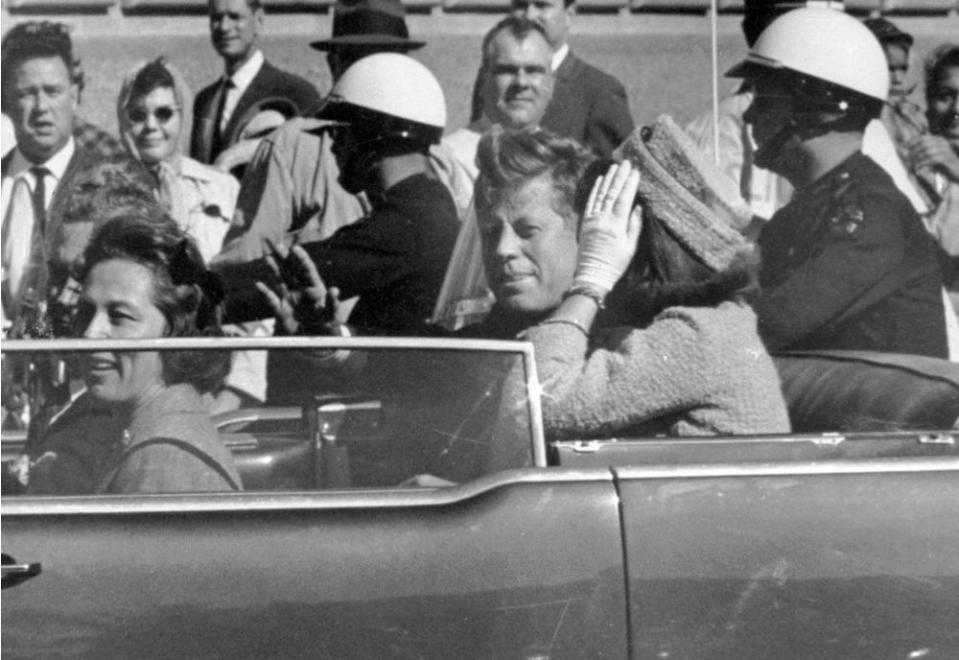
Just as disturbing are the signs leading up to JFK’s death.
According to the book, a number of friends advised JFK not to go to Dallas. During the president’s birthday party on Nov. 20, Ethel Kennedy “found Jack distant and brooding,” and he later sang a “haunting” song to a group of friends, RFK Jr. writes. The previous weekend, “Jack had made an unusual spontaneous trip to Palm Beach to say goodbye to his father,” the author adds.
Most unsettling of all, RFK Jr. references other sources to paint an eerily prescient picture of the morning of JFK’s death. According to the book, the president eased his wife Jackie Kennedy‘s concerns about his safety that morning by telling her: “But, Jackie, if somebody wants to shoot me from a window with a rifle, nobody can stop it. So why worry about it?”
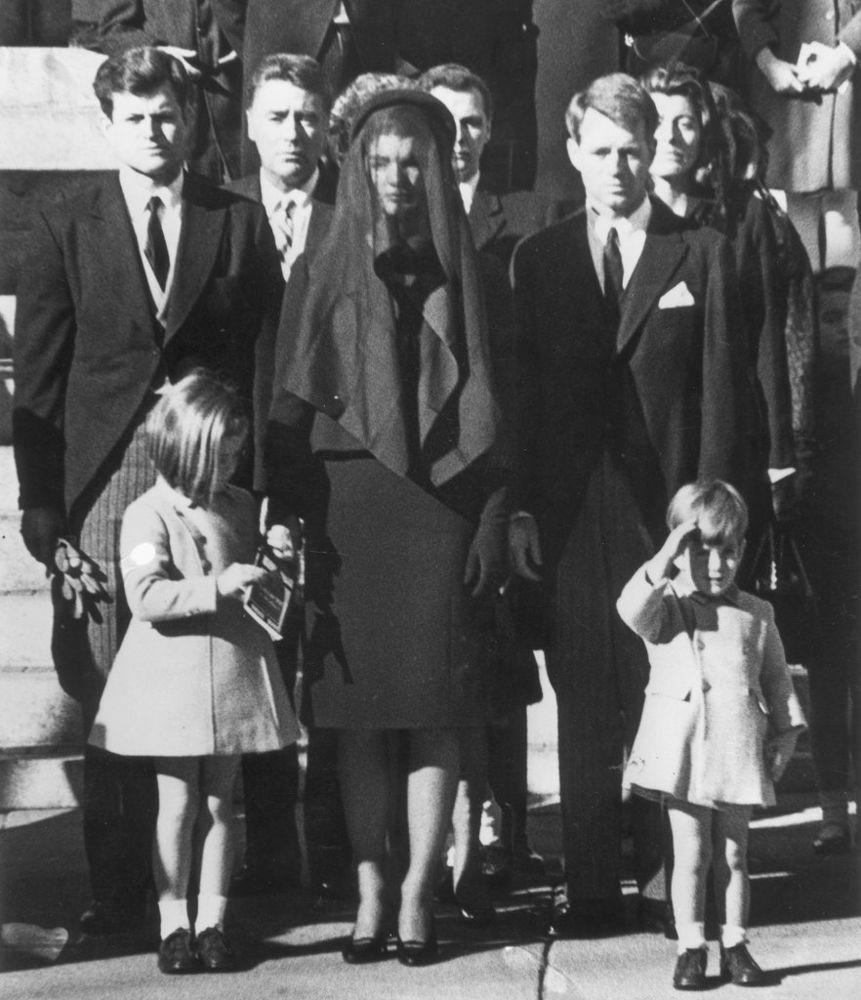
While RFK was tormented by his brother’s death (he started wearing JFK’s leather flight jacket, carried his tie clip, and kept a lock of his hair in his dressing room, according to the book), RFK eventually processed his grief and focused on his own political causes. During his time as U.S. attorney general and later as U.S. senator from New York, RFK fought against organized crime and was a champion for civil rights. Months before his death, RFK joined the race for the 1968 Democratic presidential nomination.
“Each time a man stands up for an ideal, or acts to improve the lot of others, or strikes out against injustice, he sends forth a tiny ripple of hope,” RFK said during his “Ripple of Hope” speech while in South Africa, “and crossing each other from a million different centers of energy and daring, those ripples build a current that can sweep down the mightiest walls of oppression and resistance.”
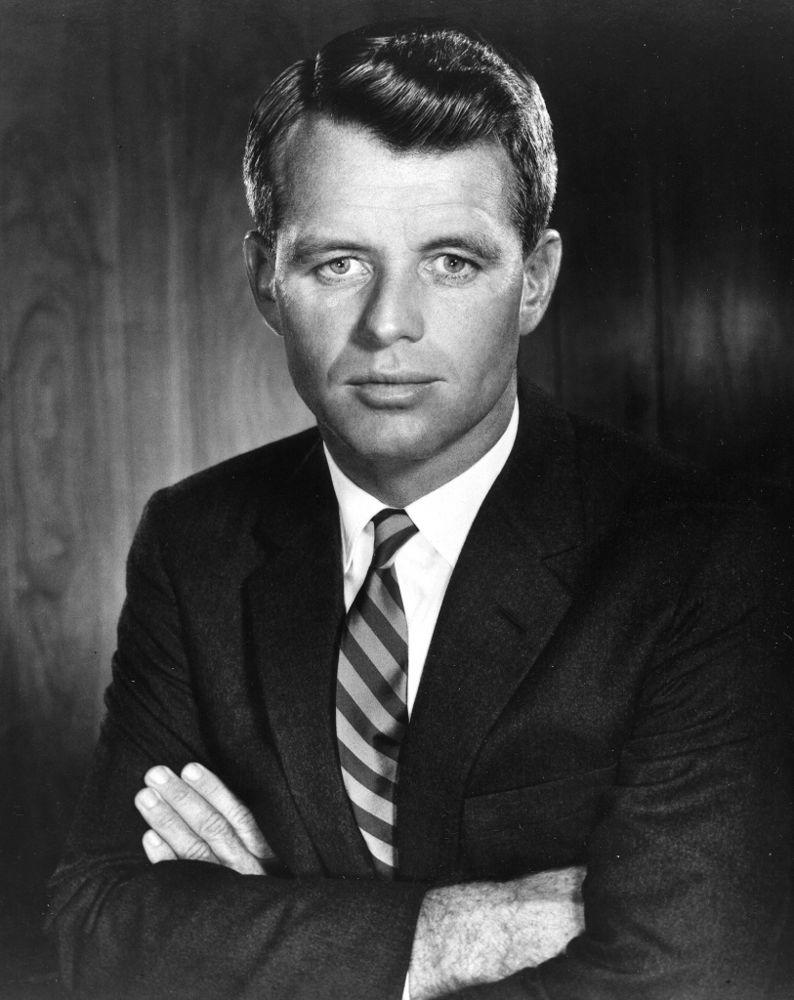
Despite his hopeful conviction, omens and danger continued to circle the Kennedy family.
“My father, as ever, was fatalistic about his own destiny,” Kennedy writes. Not only did RFK refuse to be “surrounded by security” because he was afraid of being spied on by the FBI, RFK wanted to “engage and touch the crowds.”
“Often, former federal agent Billy Barry was alone with my dad in the back of a car,” Kennedy writes. “In hindsight, it was certainly reckless, given the power and determination of his many enemies. I suppose it was hubristic, too.”
According to the book, death threats were so “routine that they had become banal.” While RFK remained unfazed, others were afraid for the presidential hopeful.
“Do you know what I think will happen to Bobby if he is elected president?” Jackie Kennedy told Arthur Schlesinger at a party on April 2, 1968, according to Jacqueline Bouvier Kennedy Onassis: The Untold Story by Barbara Leaming (which Kennedy also cites). “The same thing that happened to Jack. There is so much hatred in this country, and more people hate Bobby than hated Jack. That’s why I don’t want him to be president.”
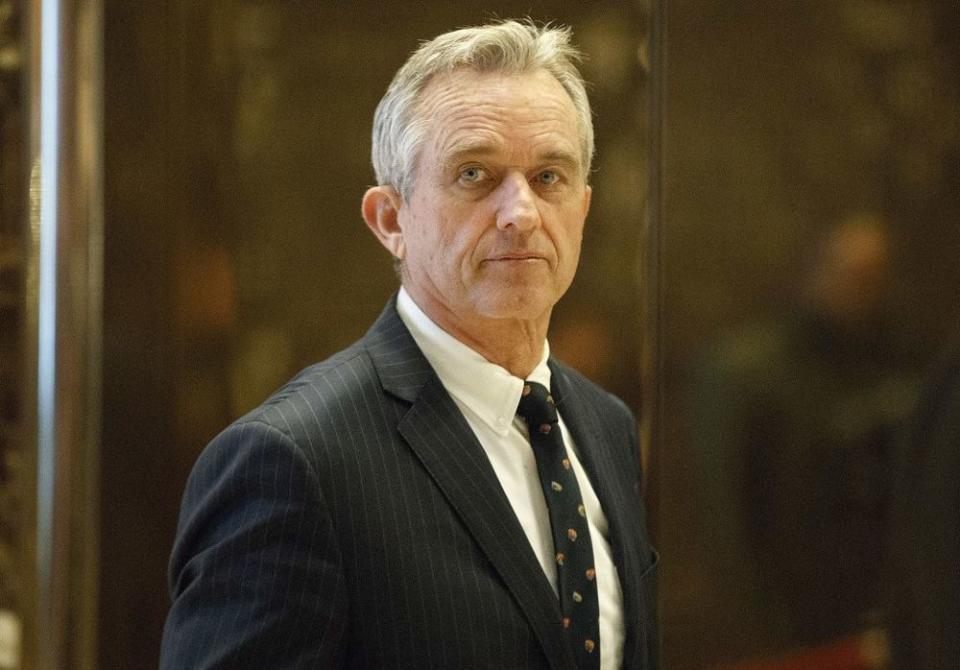
The day of the California primary, RFK’s beach outing with his wife and six of his eleven children quickly turned dark when his son, David, almost drowned because of a strong undertow, according to the book. Kennedy writes that “my father pulled him out, probably saving his life.”
Shortly after, on June 5, 1968, Robert F. Kennedy was assassinated. His son, David, was left alone to watch his father’s murder replay on the TV for hours before he was discovered, according to the book. Kennedy writes that his brother “never got over that loss” and died of an overdose at the age of 28.
Looking back, RFK Jr. realizes he had his own portentous moment with his father.
“When I was 14, and [my father] was struggling with his decision to run for the presidency, he handed me a copy of Camus’s classic The Plague, and told me, with unusual urgency, to read it,” Kennedy tells PEOPLE. “It was the story of a doctor wandering home to home treating bubonic plague patients in a quarantined North African city. The doctor goes about this hopeless business quietly, without fanfare, knowing that his struggle against death is mainly fruitless and that his own demise is the likelihood.”
Kennedy adds, “Despite their apparent futility, [the doctor’s] small acts of moral courage give his life its purpose and somehow bring order to the larger universe.”
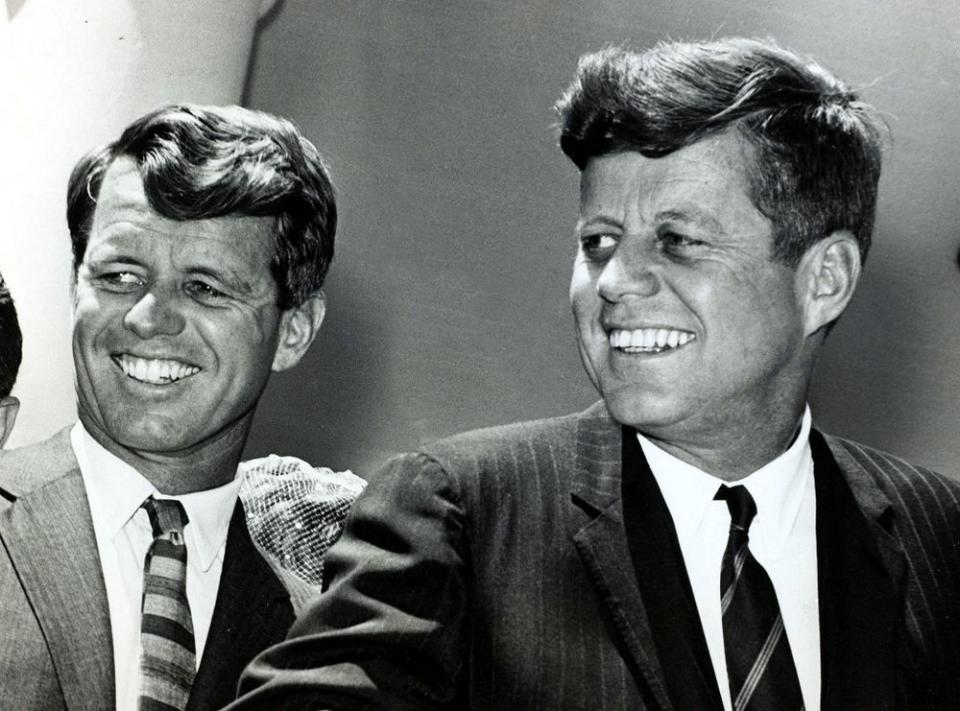
Despite the threats against RFK, or perhaps because of them, RFK Jr. explains that his father continued to believe in the lessons taught by existential writers, his Catholic faith, and Greek philosophers.
“My father’s last campaign seemed, from its outset a lost cause, but he was genuinely happy for the first time since losing his brother,” Kennedy tells PEOPLE. With a reference to Sisyphus, the king in Greek mythology who is sentenced to push a rock up a hill for all eternity, Kennedy went on: “I think my father wanted me to know that satisfaction in life comes from pushing the stone up the hill, even when all the odds and the destinies oppose you. And sometimes you might prevail. He loved Emerson’s observation that ‘If a single man plant himself upon his own ideals, and there abides, the whole wide world will come round to him.’”
American Values is on sale now.

